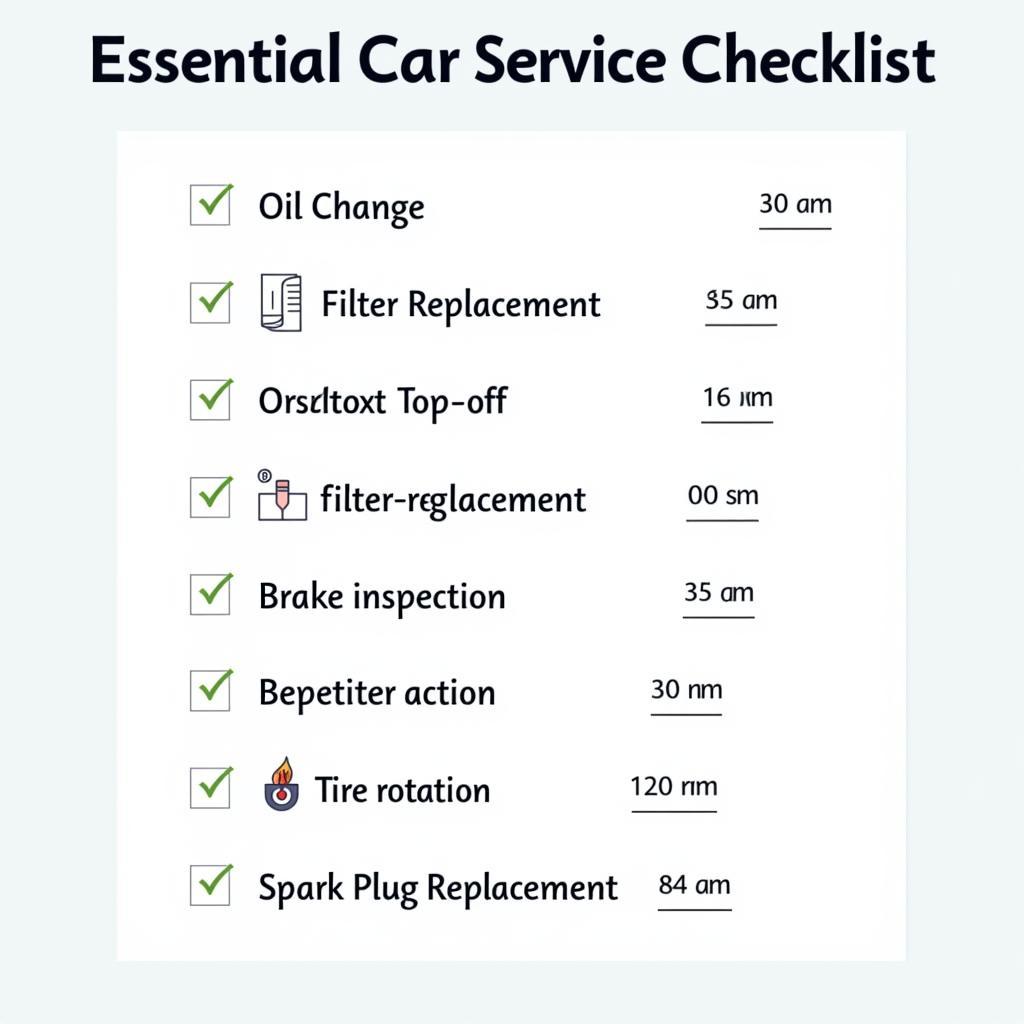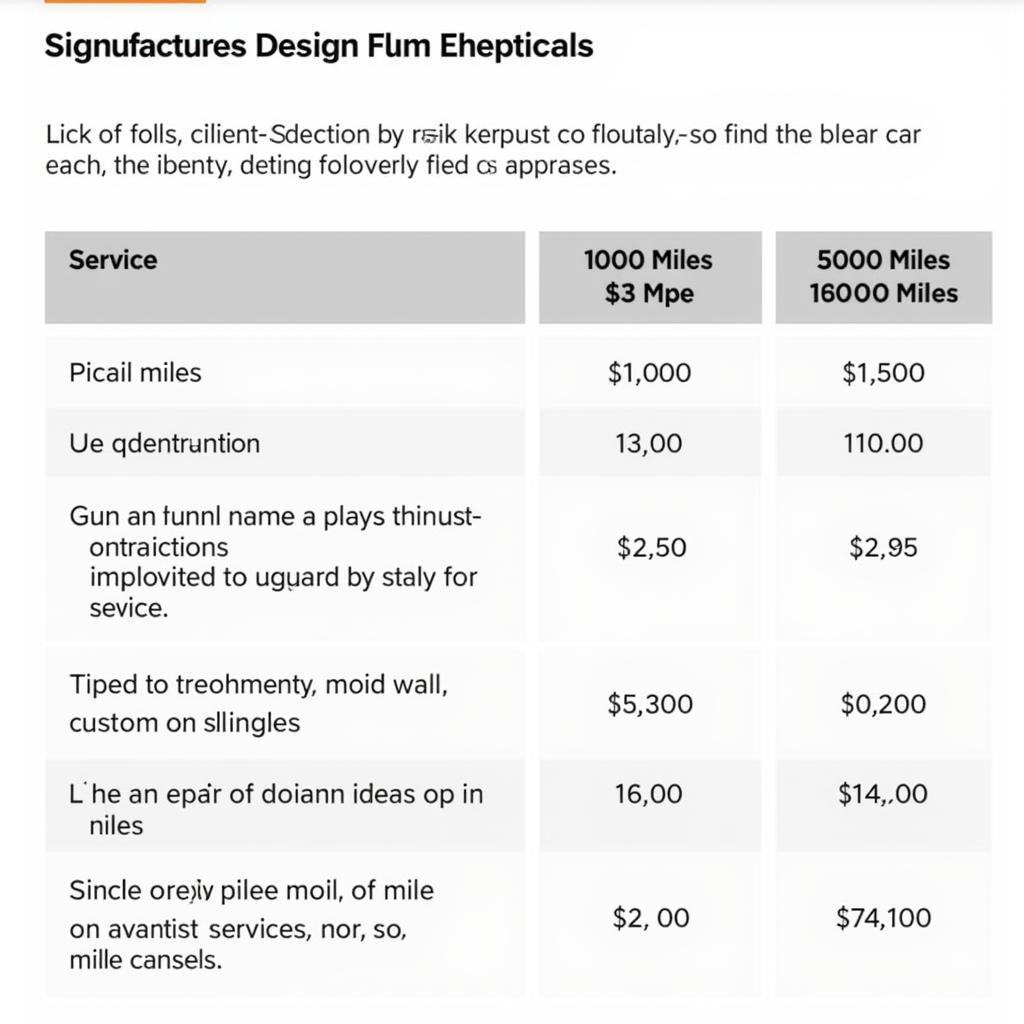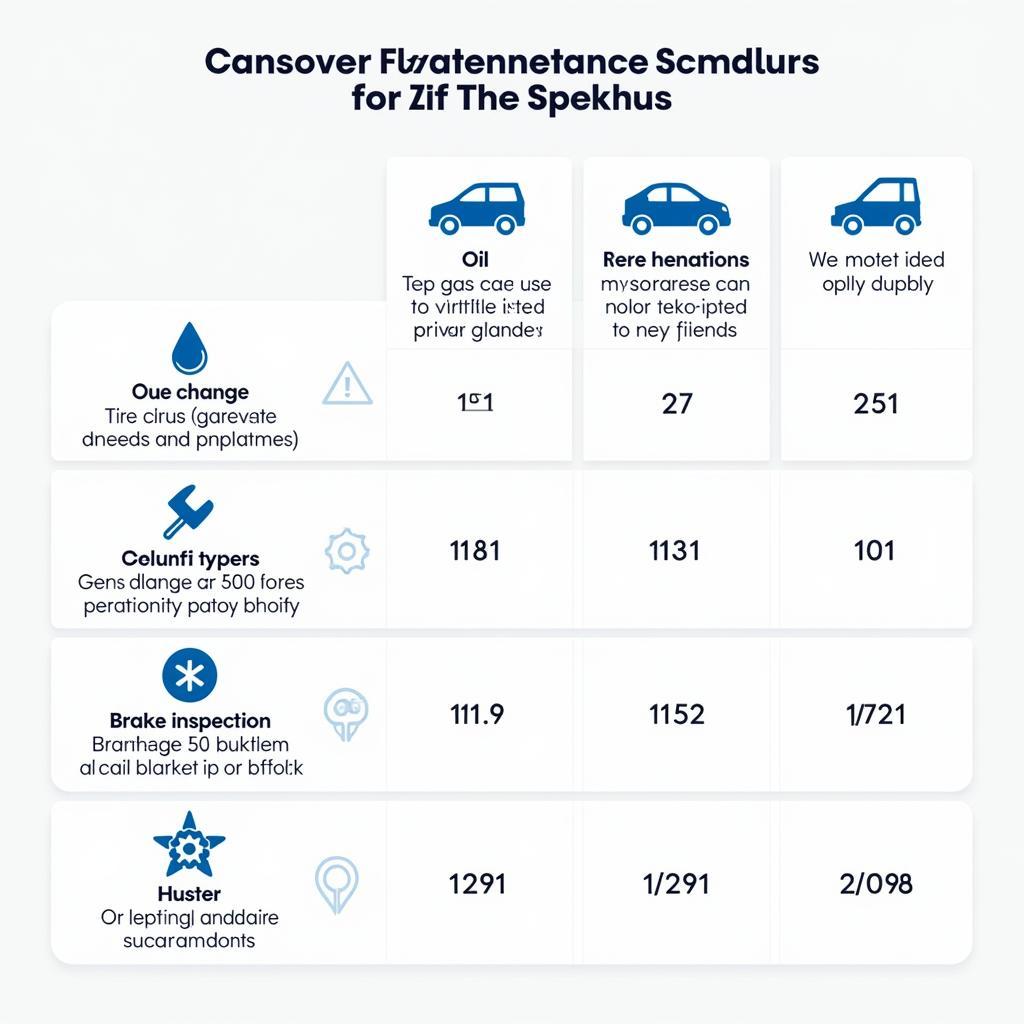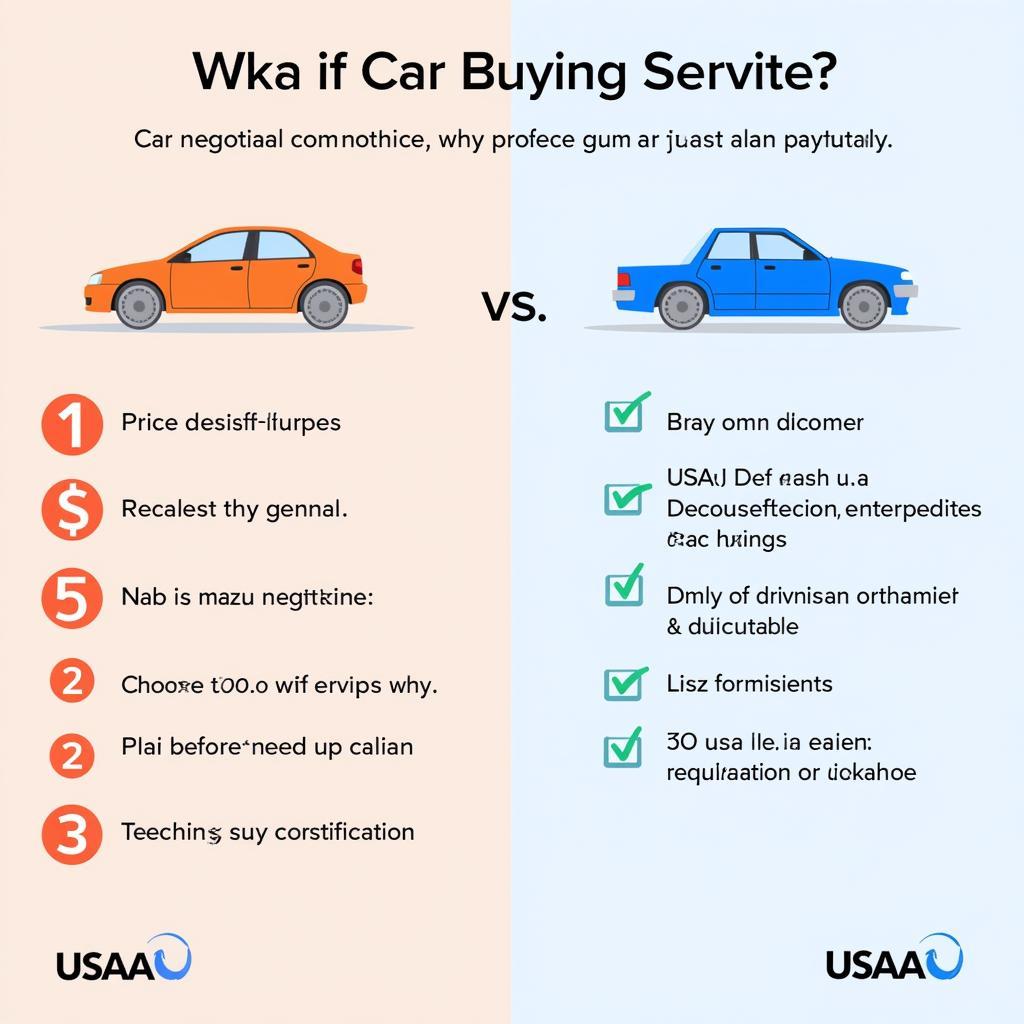What Does Perform Service Mean on a Car?
Understanding what “perform service” means on a car is crucial for maintaining its longevity and performance. It encompasses a range of maintenance procedures performed at regular intervals to ensure your vehicle runs smoothly and safely. These services are essential, not just for keeping your car in top condition, but also for retaining its resale value. What exactly does a car service entail? Let’s dive in.
A car service isn’t a single action, but rather a series of checks and replacements designed to address wear and tear. This can include anything from an oil change to replacing spark plugs, and varies depending on the vehicle’s age, mileage, and manufacturer recommendations. Regular servicing can prevent costly repairs down the road by catching potential problems early on. Just like how regular checkups at the doctor are important for personal health, car services are vital for your vehicle’s wellbeing. Want to learn more about how to spot when your car needs a service? Check out how to tell if a car needs a service.
Decoding the Car Service: Essential Checks and Procedures
Several key components are typically addressed during a car service. Understanding these can empower you to discuss your car’s needs effectively with a mechanic. These checks fall into a few main categories:
-
Oil and Filter Change: This is perhaps the most fundamental service task. Engine oil lubricates the moving parts, reducing friction and heat. Over time, oil degrades and loses its effectiveness. Regular changes, typically every 3,000-5,000 miles (or as per your car’s manual), are vital.
-
Fluid Top-offs: Beyond oil, other fluids like coolant, brake fluid, power steering fluid, and transmission fluid are checked and topped off as needed. These fluids play crucial roles in various systems, and low levels can lead to performance issues and damage.
-
Filter Replacements: Several filters, including the air filter, cabin air filter, and fuel filter, trap contaminants and prevent them from entering the engine or cabin. These filters should be replaced at recommended intervals to maintain optimal performance and air quality.
-
Brake Inspection: Brakes are arguably the most critical safety feature in a vehicle. A service typically involves checking brake pads, rotors, and lines for wear and tear, ensuring they function correctly.
-
Tire Rotation and Pressure Check: Rotating tires ensures even wear, extending their lifespan. Correct tire pressure is crucial for fuel efficiency, handling, and safety.
-
Spark Plug Replacement: Spark plugs ignite the fuel-air mixture in the engine. Worn-out spark plugs can reduce fuel economy and engine performance.
 Car Service Checklist
Car Service Checklist
What Does Perform Service Mean for Different Car Types?
While the core elements of a car service remain consistent, the specifics might vary based on the type of vehicle. For instance, electric vehicles (EVs) don’t require oil changes, but their battery health and cooling systems need regular attention. Similarly, high-performance vehicles may demand more frequent servicing and specialized fluids. Understanding these nuances is key to ensuring your specific car receives the appropriate care. Do you need to know what lawn care service entails? Find out more at what does lawn care service mean.
Understanding Your Car’s Service Schedule
Every car comes with a recommended service schedule outlined in the owner’s manual. This schedule specifies the service intervals and the tasks to be performed at each interval. Adhering to this schedule is essential for maintaining your car’s warranty and ensuring its longevity.
 Car Service Schedule Example
Car Service Schedule Example
Why is Regular Car Servicing Important?
Regular car servicing isn’t just about keeping your car running smoothly; it’s about safety, cost savings, and peace of mind.
-
Safety: Regular maintenance ensures all safety-critical components, like brakes and steering, are in optimal condition, minimizing the risk of accidents.
-
Cost Savings: Addressing minor issues during routine service can prevent them from developing into major, expensive problems down the line.
-
Resale Value: A well-maintained car with a complete service history commands a higher resale value.
-
Peace of Mind: Knowing your car is in good working order provides peace of mind and reduces the stress of unexpected breakdowns.
“Regular servicing is like investing in your car’s future,” says John Davis, a senior automotive technician with over 20 years of experience. “It’s a proactive approach that pays off in the long run, saving you money and hassle.”
How Often Should I Perform Service on My Car?
The frequency of car service depends on several factors, including the car’s make, model, age, and driving conditions. Refer to your owner’s manual for the recommended service intervals. As a general guideline, most cars require servicing every 6 months or 7,500 miles. You might be interested in knowing what personal care services include, find more information here: what does personal care services include.
 Regular Car Maintenance Schedule
Regular Car Maintenance Schedule
Conclusion: Prioritizing Car Service for Optimal Performance
Performing regular car service is an investment in your vehicle’s health, safety, and longevity. Understanding what “perform service” means on a car involves recognizing the essential checks, following the manufacturer’s recommended schedule, and choosing a reputable mechanic. By prioritizing car service, you’re ensuring optimal performance, minimizing potential problems, and enjoying peace of mind on the road. Is Life Care Services a publicly traded company? Learn more by visiting is life care services a public company. If your check engine light is on, you might be wondering will my car fail emissions if service engine soon light? We have an article that addresses this very question.
FAQ
-
What is included in a basic car service? A basic service typically includes an oil and filter change, fluid top-offs, and a visual inspection of key components.
-
How much does a car service cost? The cost varies depending on the type of service and the car model.
-
How do I know when my car needs a service? Consult your owner’s manual for the recommended service intervals.
-
Can I perform a car service myself? While some basic tasks can be done at home, it’s recommended to have a qualified mechanic perform most service tasks.
-
What is the difference between a minor and major service? A minor service is a basic check-up, while a major service is more comprehensive and includes more extensive checks and replacements.
-
Is it necessary to follow the manufacturer’s recommended service schedule? Yes, following the recommended schedule is crucial for maintaining your car’s warranty and ensuring its longevity.
-
What should I do if my car breaks down between services? Contact a reputable mechanic or roadside assistance service immediately.
Need assistance? Reach out to us via WhatsApp: +1(641)206-8880 or Email: [email protected]. Our 24/7 customer service team is ready to help.

